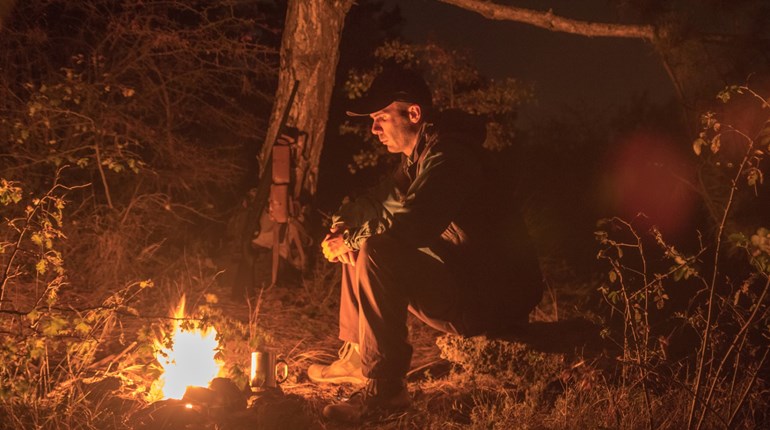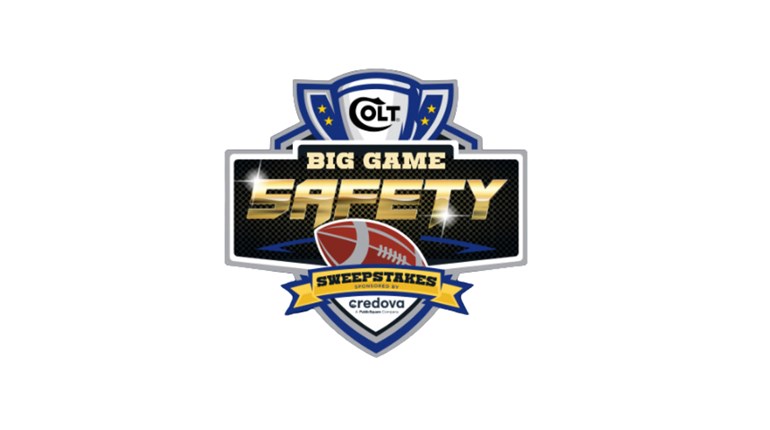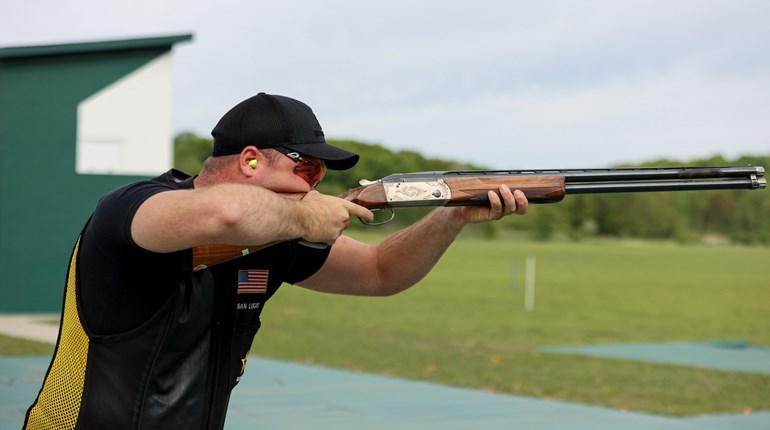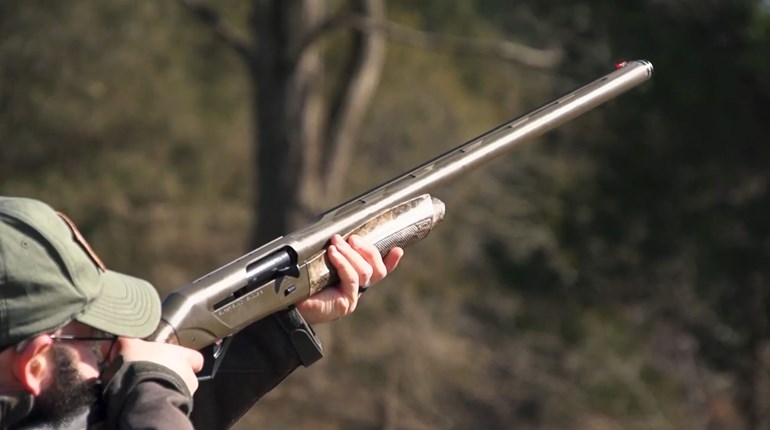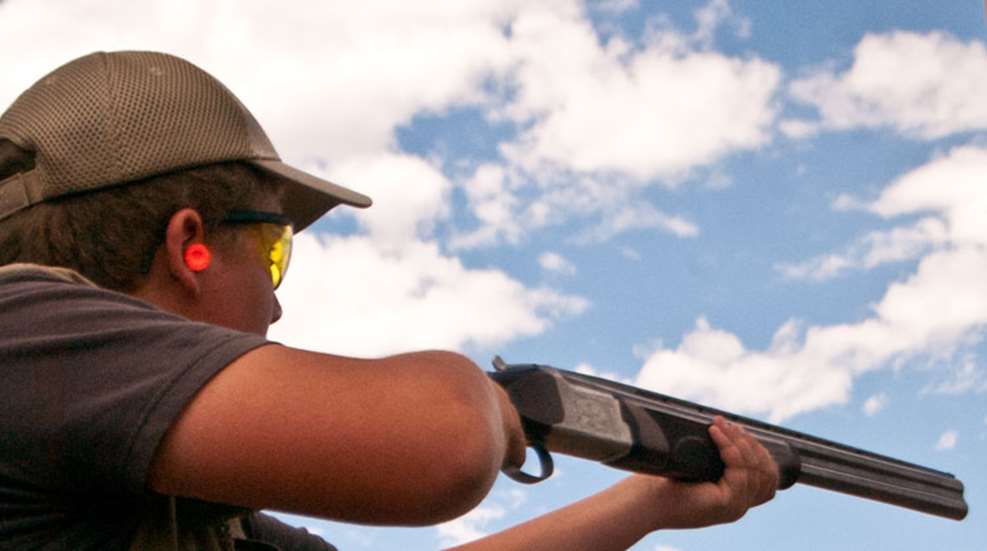
ALWAYS keep the gun pointed in a safe direction. ALWAYS keep your finger off the trigger until ready to shoot. ALWAYS keep the gun unloaded until ready to use. You know why these rules are posted on every range you'll ever visit: Knowing these rules, following them at all times—and insisting that others do the same—will help keep you and your family safe. Now it’s time to move further down the road to responsibility by learning what else lies beyond the “Big Three.”
1. Know your target and what is beyond it.
Whether you’re at the range or in the woods, if you’re going to shoot, you must know what lies beyond your target. In almost all cases, you must be sure that there is something that will serve as a backstop to capture bullets that miss or go through the target. Some bullets can travel a mile or more once they leave the muzzle.
Another factor to keep in mind is whether what lies beyond your target could potentially cause a ricochet. For example, the surface of a river or lake can act almost like a sheet of solid steel when it’s struck by a bullet, and cause the bullet to deflect in ways you wouldn’t expect. (If you think that water is too soft to cause this to happen, think of the last time you did a cannonball off the high diving board—water can act awfully solid if you hit it fast enough!) Always remember: Think first before you shoot!
2. Know how to use the gun safely.
Before handling a gun, learn how it operates. Read the owner’s manual with a parent. If you don’t have a manual, contact the gun’s manufacturer and ask them to send you one. Know your gun’s basic parts, how to safely open and close the action and how to remove ammunition from the gun. No matter how much you know about guns, always take the time to learn the proper way to operate any new or unfamiliar firearm. Never assume that because one gun resembles another, they operate in exactly the same way. Also, remember that a gun’s safety device is a mechanical device that can fail. The best safety device in the world is the one between your ears.
3. Be sure your gun is safe to operate.
Just like other tools, guns need regular maintenance to work. Regular cleaning and proper storage are a part of the gun’s general upkeep. If there is any question regarding a gun’s ability to function, it should be examined by a knowledgeable gunsmith. Some items that should raise a “red flag” about whether a gun is safe to use include age (some guns made before the twentieth century are unsafe to use with modern ammunition), visible damage or rust, or if nobody you know has fired the gun in the last few years.
4. Use only the correct ammunition for your gun.
Each gun is intended for use with a specific caliber or cartridge. Only cartridges designed for that particular gun can be fired safely. Most guns have the ammunition caliber stamped on the barrel or the slide. The owner’s manual will also list the cartridge or cartridges appropriate for your gun. Ammunition can be identified by information printed on the cartridge box and sometimes stamped on the cartridge head. Using the wrong ammunition in your gun can cause severe damage to the gun…or to the person holding it. Do not shoot the gun unless you know you have the proper ammunition.
5. Wear eye and ear protection.
The sound of a gunshot can damage unprotected ears. Worse still, the damage is usually not obvious until much, much later, when you get older. (Have you ever noticed that some older shooters talk really loudly? That may be due to hearing loss from not wearing ear protection.) Also, gun discharges can emit debris and hot gas that can cause injury to your eyes. Take care of yourself: Wear safety glasses and earplugs whenever you shoot.
6. Never use alcohol or drugs before or while shooting.
“Why are you even mentioning this to me?” you may be asking. “I don’t drink or do drugs!” Well, even some legal drugs, like prescription medicine or over-the-counter remedies, can impair your ability to shoot safely. Carefully read the label of any medication you take—or ask your doctor about possible side effects.
7. Store guns so they are inaccessible to unauthorized persons.
There are a variety of storage options available to you and your family. Talk with your family to determine which is best for your situation.
8. Be aware that certain types of guns and shooting activities require additional safety precautions.
There are many different types of firearms, some of which require additional safety rules or procedures for proper operation. These should be in your owner’s manual. Also, most sport-shooting activities have developed a set of rules to ensure safety during competition. The rules may be different from sport to sport, so always listen carefully to your instructor or range safety officer.
Gun safety is everyone’s responsibility, no matter your age or ability level. If you see someone else violating the rules of safety, you should speak up. Doing this is a service to yourself and everyone around you. Welcome to the next level!













